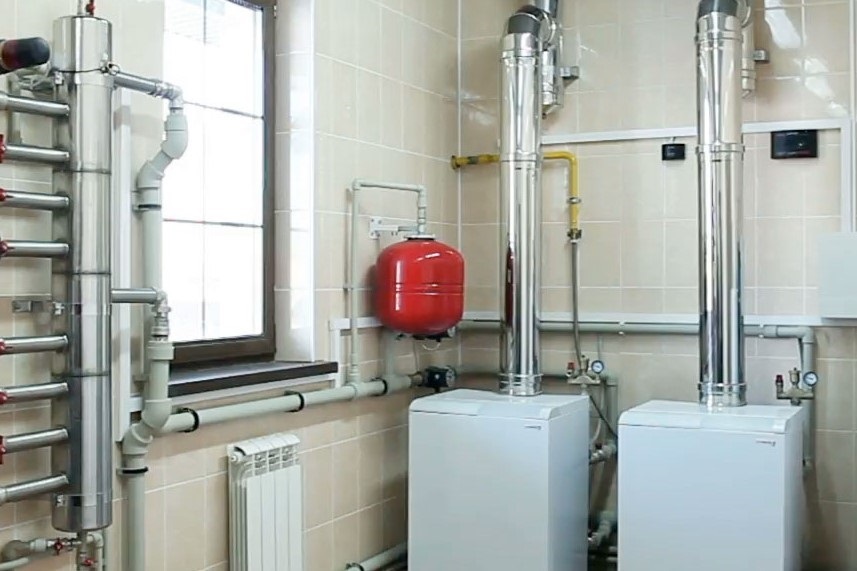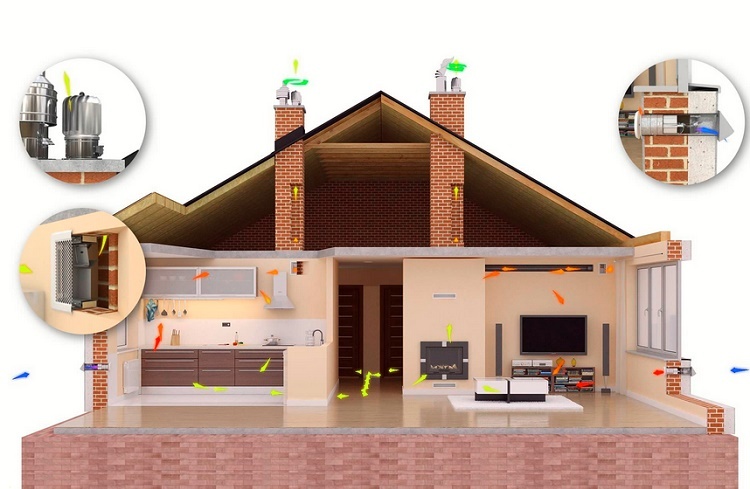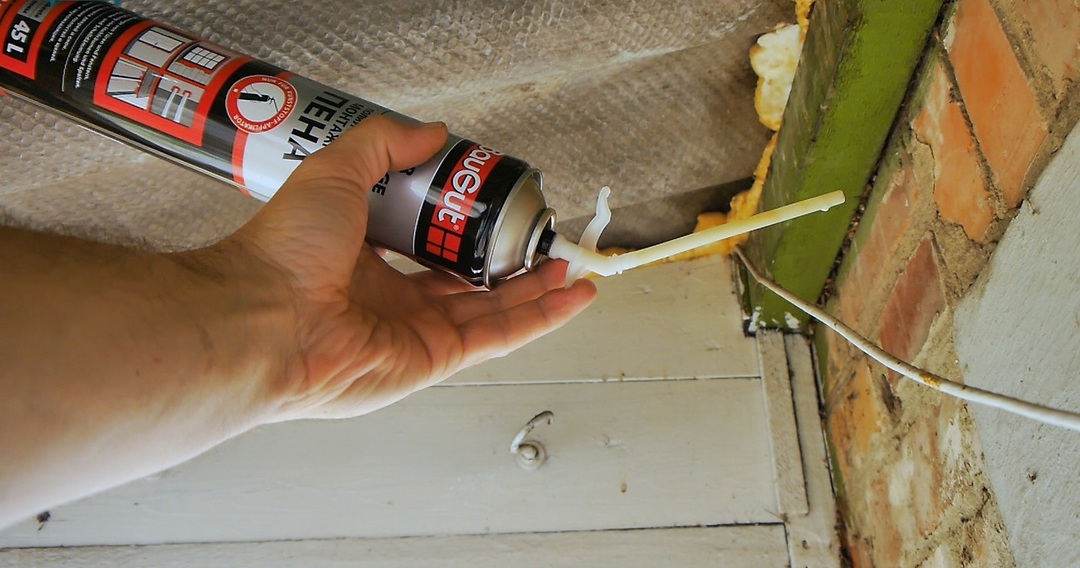Living conditions in modern apartments with a large area are more comfortable. Here you can easily allocate a place for arranging a dressing room or installing a large cabinet for storing clothes, shoes, accessories.
Modern wardrobes are huge in size and can accommodate a huge amount of things. And the created dressing rooms sometimes reach whole rooms in size. To ensure the high-quality preservation of things, it is necessary to create special conditions during storage, including a properly equipped air exchange system.
In this article, we will talk about how ventilation in the wardrobe should be arranged and what features should be taken into account when doing this. We will select illustrative photos about hoods in the dressing room and useful video tips.
The content of the article:
- Why ventilation in the dressing room?
-
Features of the arrangement of ventilation
- Option # 1 - natural ventilation
- Option # 2 - forced air exchange
- Recommendations for arranging the hood
- Conclusions and useful video on the topic
Why ventilation in the dressing room?
Despite the size of the dressing room, it is still a room without free access to air. And in conditions of isolation and lack of air circulation, bacteria can develop, fungus and mold.
In order to prevent such a situation, in southern countries, for example, storage of things in a confined space is allowed only after they have been washed. Otherwise, a humid hot climate and a lack of air circulation have a beneficial effect on the development of mold on clothes that have come into contact with the human body at least once. Thus, one worn shirt can cause mold to cover all clothing in an unventilated area.
In the climatic conditions of our country, the development of mold can be facilitated by wet or dirty clothes thrown into the closet or wardrobe. For example, a tracksuit after a run.
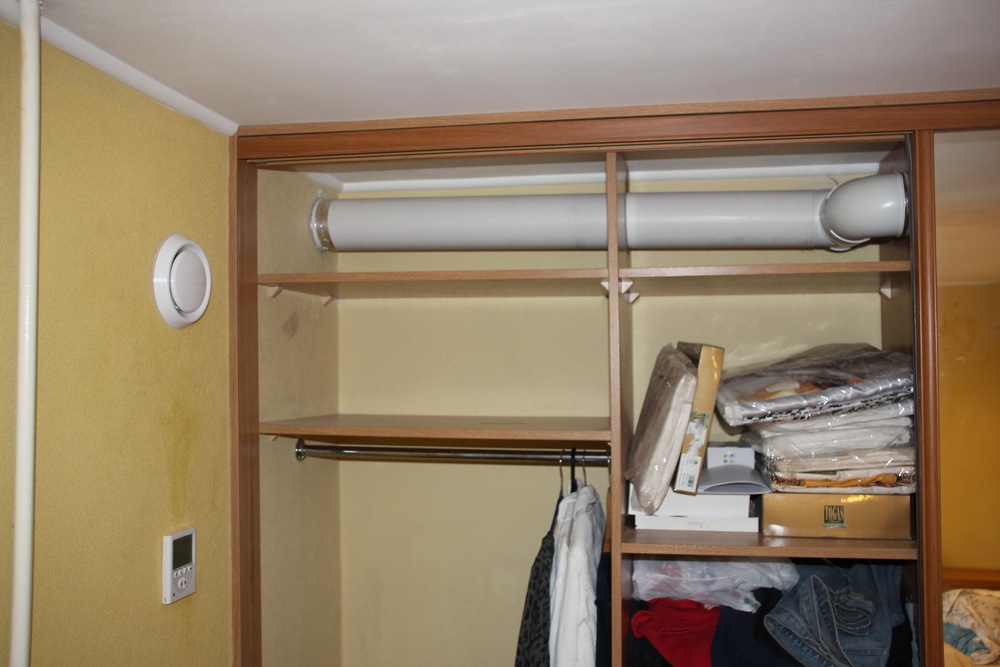
If the dressing room is large enough and consists of open shelves with things and cabinets with lockable doors, then you should definitely consider ventilation methods for both the dressing room itself and these closed cabinets. The ventilation functionality of the dressing room is not enough to ventilate the closed cabinets in this room.
However, mold and mildew are not all the worst things that can form in the confined space of a closet or dressing room.
The absence of a hood in the dressing room or closet contributes to the appearance of:
- Moths - an insect that washes fur products into powder, using fur fibers as food.
- Kozheedovwho eat leather goods and are able to gnaw holes in clothes the size of a five-ruble coin. When kozheedov appear, the only way to get rid of them is to completely disinfest the apartment.
- Cockroaches. Oddly enough, they are attracted not by crumbs and scraps, but by the smell of a person. Human sweat, food stains on clothes, and starch that is used when washing things are great bait for cockroaches. They, eating all this, leave many small mesh holes on the fabric.
- Silverfish. They, too, are attracted to the smell of human sweat. Eating it, they leave many small holes on the clothes.
- Sverchkov. It would seem that these are completely harmless insects, but they, like cockroaches, eat the fabric along with sweat and food debris on clothes. It is almost impossible to breed crickets on your own.
It must always be remembered that parasitic microorganisms take every opportunity to settle in a person's house.
Stagnant air in a confined space is a catalyst for the development of the smallest parasites, which negatively will affect human health, negatively affecting well-being, causing respiratory diseases or headaches pain.
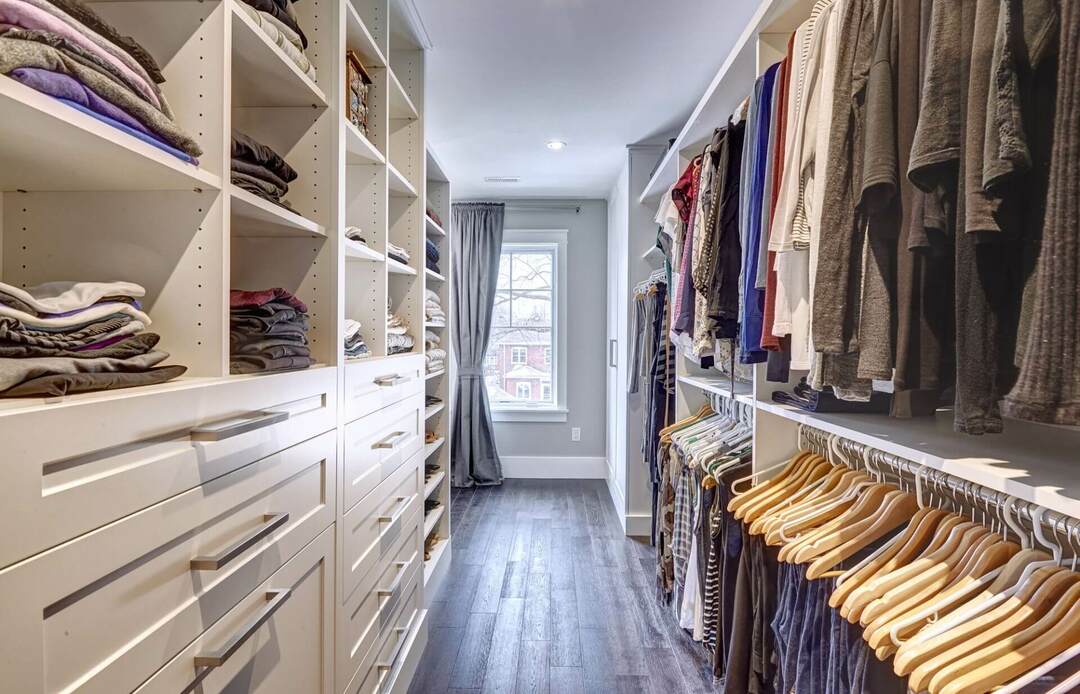
To ensure air circulation in the dressing room, you must not press things close to each other and fill the shelves with clothes to the eyeballs. Air should pass freely between the hangers with things and have access to the shelves
And, of course, the lack of ventilation affects the clothes themselves. The musty smell of an unventilated room is absorbed by the fabric and can only be removed after repeated washing.
Therefore, when deciding whether you need ventilation in your dressing room and closet, it is worth considering the likely consequences of its absence. After all, it is the hood that ensures the normal state of clothing, prevents the formation of parasites, mold and insects, and maintains a stable state of health of the users.
Features of the arrangement of ventilation
Depending on the location of the dressing room or closet, as well as the presence or absence of the system ventilation ducts mounted at the stage of building a house, the way of organization will depend air exchange. Next, we will consider the options that are most popular among users.
Option # 1 - natural ventilation
When installing cabinets, you should pay attention to the presence of windows in the room - regular ventilation provides an inflow of fresh air, which will have a beneficial effect on the sanitary condition inside premises. In this case, the cabinet doors should be systematically opened to organize air exchange. Such household ventilation will be quite enough for cabinets, and additional ventilation is not required.
We recommend that you familiarize yourself with the features of the arrangement natural ventilation.
It is worth noting that modern double-glazed windows create airtightness in the room, thereby preventing air from entering through the window cracks. In such rooms, it is imperative to provide for constant ventilation by opening windows.
However, dressing rooms are usually located in the “remote” parts of the apartment, where there is no access to fresh air. Therefore, it is so important to resolve the issue of ventilation in it even at the stage of arranging a dressing room without a single window.
Ventilation system in a dressing room without a window
In rooms where there is no window and there are no special ventilation openings with adjacent rooms, air currents will not be able to circulate naturally. With natural air circulation in the apartment, the standards provide for its movement from open windows to ventilation ducts, which are usually located in the bathroom, toilet and kitchen. Thus, the air currents will bypass the closed dressing room, leaving in it an unpleasant odor and a beneficial environment for the development of bacteria, parasites and insects.
Differences in air temperature in a closed dressing room and in the rest of the apartment can contribute to condensation and further mold formation. And the absence of a hood in the dressing room leads to negative consequences.
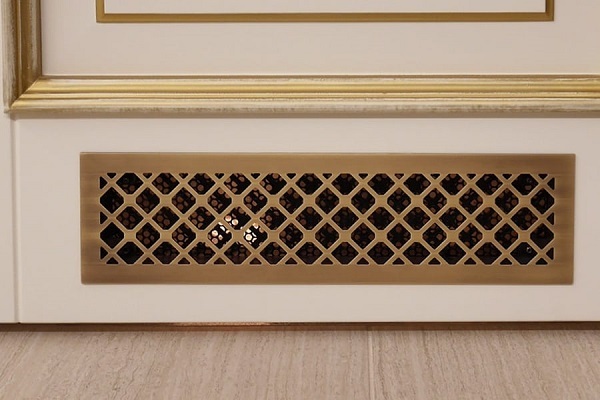
When designing a dressing room, it is imperative to include special ventilation in the design of the entrance door openings, leave sufficient space between the floor and the door to allow natural ventilation in premises
In such rooms, in order to organize the normal movement of air with natural ventilation, it will be necessary to install a system of air ducts and openings between the walls. Through such openings, air from other rooms can penetrate and circulate inside the dressing room.
But, if the walls of the dressing room are in contact with the walls of a neighboring apartment or with rooms where there are no windows, then only the presence of an exhaust duct can ensure air circulation.
Ventilation in the dressing room with a window
Now let's talk about how to properly make a ventilation system in a dressing room with windows. So, when installing a cabinet in such a room for natural ventilation, it is enough to make several special holes. Often, furniture manufacturers do not pay attention to this issue at all, preferring the originality of the design and decor of the cabinet to its normal functioning.
And just a few holes in the back wall of the cabinet will save the owner not only from the unpleasant musty smell of a closed space, but also from the appearance of the above insects, fungi and mold.
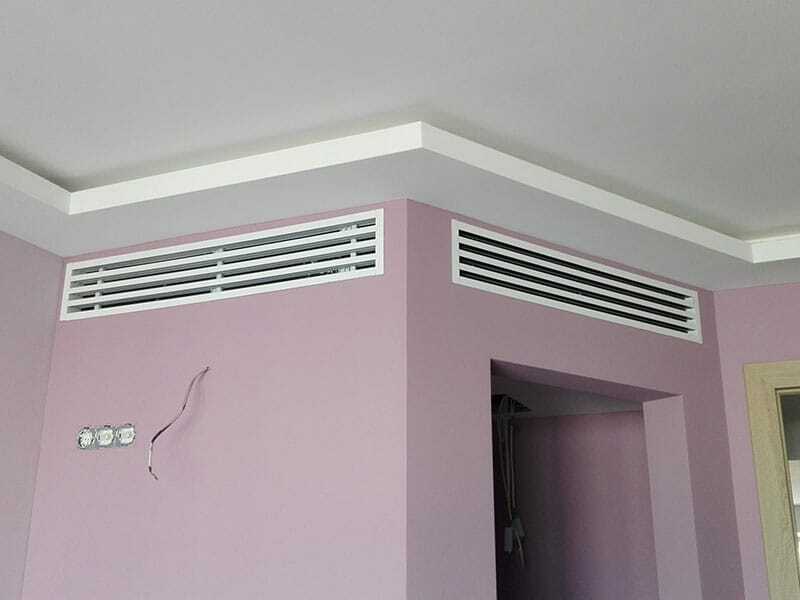
A properly working exhaust system provides normal traction, which will ventilate all rooms of the apartment. To ensure normal circulation of the dressing room, it is necessary to take care of the possibility of sufficient air penetration into the room. The smaller the ventilation grill, the worse the air penetrates into the dressing room.
Option # 2 - forced air exchange
To organize forced air exchange in a separate dressing room, you will have to make installation of a separate ventilation duct, if such was not provided for during construction apartment building.
It is worth noting that modern apartment buildings are already designed with the possibility of creating dressing rooms, in which the general ventilation system is prudently carried out.
The air supply is usually carried out through the bedroom, living room and other rooms where there are windows. And, the hood, respectively, is installed in other rooms.
The principle of operation and the rules for the construction of the supply and exhaust ventilation system, we examined in detail in this material.
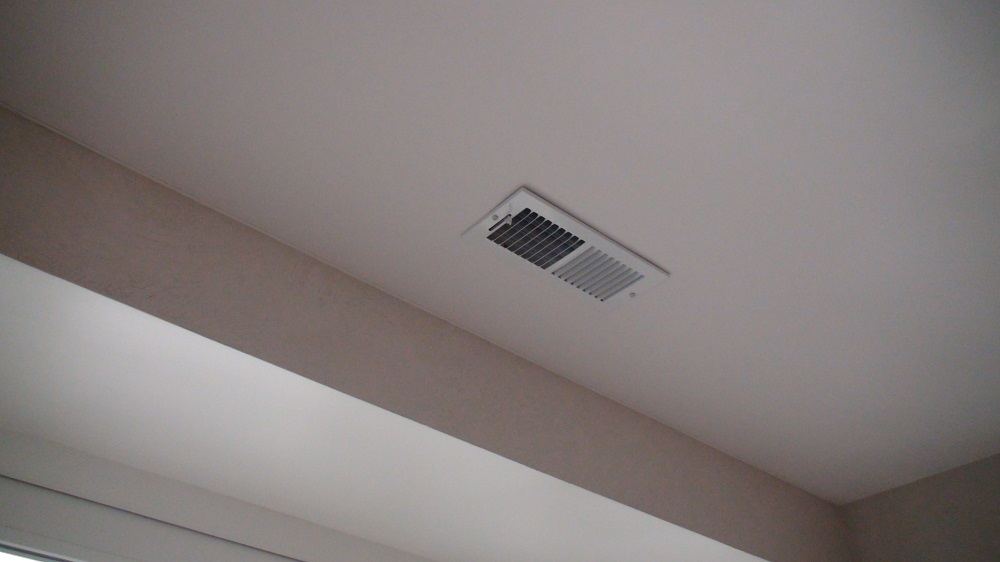
One of the options for ventilating a closed dressing room is to create a hood on the ceiling. The implementation of this option is possible at the very beginning of construction and repair. It is considered the best option for air circulation. The only prerequisite for proper functioning is the installation of a ventilation grill at the bottom of the dressing room door.
Using an exhaust fan
An additional method that will provide forced ventilation in the dressing room is to install it in ventilation ducts of the fan, which will mechanically blow fresh air inside a closed room.
To find out how much power a fan is needed, it is enough to make small calculations. To do this, we calculate the volume of the room by multiplying the area of the dressing room by the height. The resulting value, multiplied by 1.5, will give us the air exchange rate per hour for this room.
Accordingly, the fan power must be selected based on the values obtained.
Wall vent valve installation
Such an arrangement of the dressing room, when only one room is an adjacent room, will not make it possible to connect supply and exhaust ventilation. Currently, this problem can be solved by installing the supply valve in the wall.
This device is a plastic pipe that supplies air from the street directly to the dressing room.
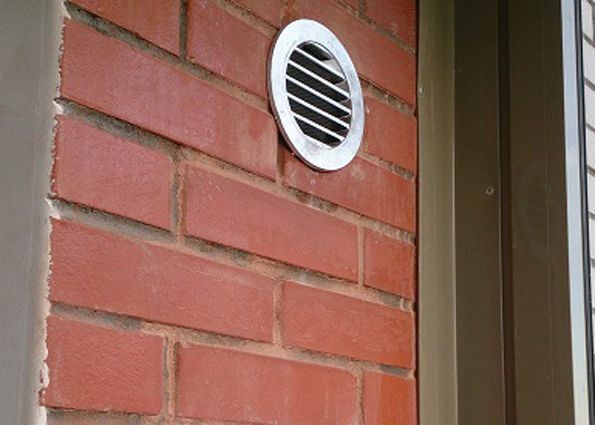
It is worth remembering that when the ventilation valve is installed in the wall, the architectural appearance of the building is interfered with. But this operation, like the installation of air conditioners, is currently not regulated by law.
The supply valve includes the following elements:
- outdoor ventilation grill, which prevents the possibility of moisture, dirt, large solid particles, insects getting into the structure;
- filter, which cleans the outside air from small particles, directing purified air into the dressing room;
- valve, which allows you to smoothly adjust the power of air supply to the room.
More expensive models have a noise absorption system, automatic humidity control, a special design when coming from outside the air through the damper enters the radiator, where it heats up to room temperature, and then enters the room dressing room.
The installation of the wall ventilation valve should be done by a specialist, since the outer part will be installed at a certain height. Work at height must be carried out in compliance with all safety requirements.
Do you want to invite a specialist to install a wall valve? In this case, we recommend that you familiarize yourself with assembly instructions.
Recommendations for arranging the hood
There are several types of dressing rooms. And the way of arranging ventilation will depend on their design features and location in a house or apartment.
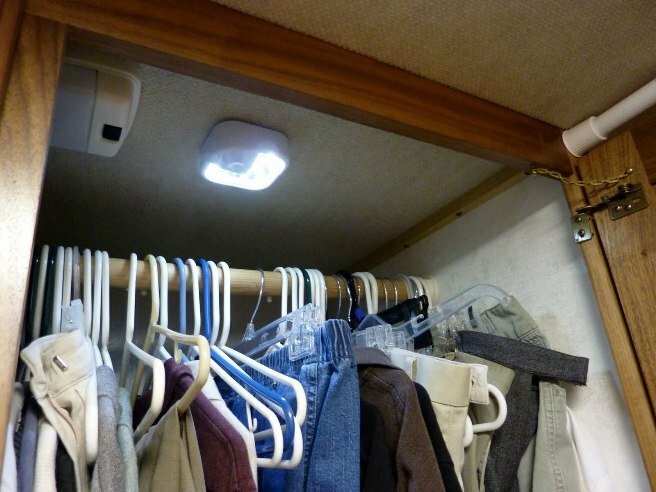
Air control devices in the dressing room, in addition to their main purpose, can be endowed with an air freshening function. This is a great alternative to combating unpleasant odors inside the dressing room.
Consider the main types of dressing rooms and ways to ensure normal air exchange for them:
- Dressing room in a separate room. If the room is without a window, then it is necessary to carry out supply and exhaust ventilation or install a wall valve. Only in this way it will be possible to ensure normal air circulation in the entire dressing room.
- Wardrobe in the utility room. This is the most common type of dressing room. It is imperative to provide supply and exhaust ventilation, which should be strengthened with an additional installation. fanto avoid musty odors and bacteria spreading indoors.
- Cloakroom behind the partition. This is a specially built plasterboard construction. If it is located in a room with a window, then to ensure natural ventilation, it will be enough to do the required number of holes in the drywall that can be decorated so as not to disrupt the overall design premises. If the structures are built in a room without a window (usually they are made in the corridor), then you cannot do without supply and exhaust ventilation, which will be provided with the help of an installed fan of the necessary power.
- Cloakroom under the stairs. This is a fairly common option in private houses and duplex apartments. It is a large cabinet for storing various things. It is possible to organize ventilation in such a dressing room by making special ventilation holes in the inner walls to adjacent rooms. The air will circulate naturally.
- Corner cupboard. For this option, mounting ventilation is a rather complicated operation. That is why special ventilation holes must be provided in the back or side walls of the cabinet. It is advisable to additionally build decorative ventilation grilles into the doors of such cabinets.
Additionally, inside a dressing room or closet for things, you can install devices for monitoring the state of the air, which will also control humidity.
Such a measure will allow in advance to prevent the appearance of dampness and the spread of fungus on the walls and clothes.
Conclusions and useful video on the topic
This video shows how to properly design a dressing room:
This video presents ideas for ventilation in all rooms when renovating an apartment:
The installation procedure for supply ventilation is shown in the video below:
The organization of ventilation of wardrobes with clothes and dressing rooms is a measure that is needed to create a healthy climate inside an apartment or house. The possibility of the appearance of an unpleasant odor, mold, mildew, insects makes the creation of ventilation in wardrobes and wardrobes a necessity, which will have a beneficial effect on health. Choosing the right option and proper organization of ventilation in storage areas will keep the air clean and fresh in your apartment.
Do you have any questions about the topic of the article? Or would you like to supplement the above material with useful comments? Questions and personal suggestions for arranging the hood in the dressing room can be left in the block located below the article.
